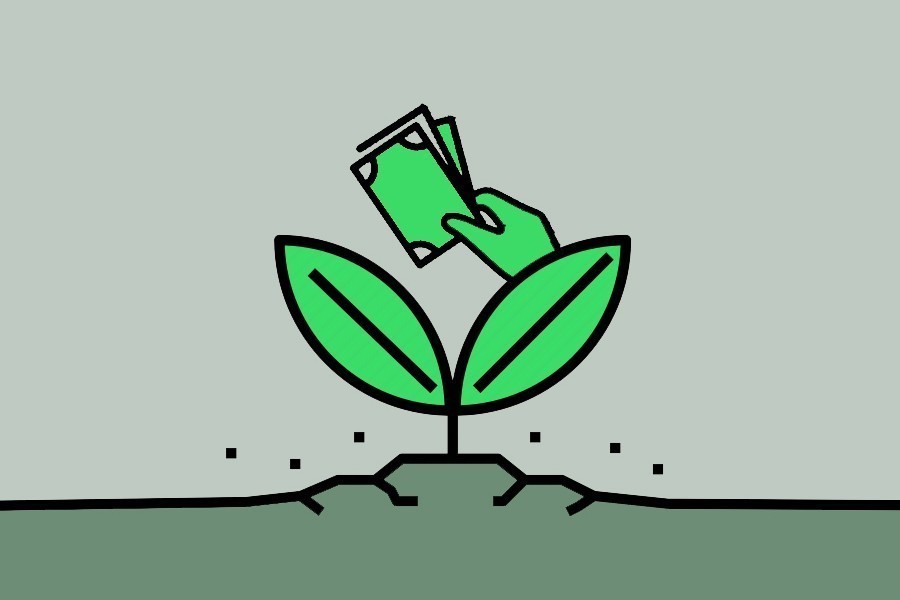Agriculture is having a heyday with bounteous fund inflow as formal farm credits during July-October period grew nearly 27 per cent year on year, as food security remains a prime concern.
The sharp rise in disbursement of agro-credit in the first four months of the current fiscal year gives a big boost to the country's crusade for food security, sources say.
The much-sought-after development comes at a time when think-tanks locally and internationally are forecasting looming food crisis globally mainly because of the ongoing volatility in the supply chain following the Russia-Ukraine war in lockstep with Covid-induced shocks.
However, the disbursement of non-farm rural credits dropped by 5.49 per cent during the same period of time than in the previous year, according to latest statistics available with Bangladesh Bank (BB).
The data show the scheduled banks all together disbursed a total of Tk 94.69 billion of which Tk 78.20 billion was for lending to farm sector and Tk 16.49 billion earmarked for non-farm rural credit during the July-October period of the FY2022-23.
The disbursement figures for agriculture and non-farm rural credits during the same period in the previous fiscal (FY'22) were Tk 61.60 billion and Tk 17.44 billion respectively.
Recovery of both agriculture-and non-farm rural credits during the period under review was higher than lending---32.77 per cent and 10.53 per cent (y-o-y) respectively, according to the data.
When contacted, a BB official said the central bank kept instructing the banks in recent months to pay more focus on agriculture sector to assist the country in achieving food security amid tensions in the global trade and economic order.
He mentioned that BB governor Abdur Rouf Talukder late last month held a meeting with the top executives of the private commercial banks to ask them to further increase the credit flow to the farmers to ensure food security in the days to come.
"This is a reflection of these. We're now planning to raise the annual targeted ratio set by the central bank from next calendar year. We want to ensure a climate where no farmer will face difficulties due to unavailability of formal credits," the BB official says.
According to a BB guideline, banks have to invest a minimum of 2.5 per cent of the total lending to the agriculture sector, and 30 per cent of the Agri-credit will have to be disbursed by the banks themselves.
Recently, the BB also formed a refinancing scheme worth Tk 50.0 as part of efforts for enhancing the liquidity support to the country's 60 commercial banks.
Managing Director and Chief Executive Officer of Brac Bank Selim R. F. Hussain says despite having remarkable contribution to the GDP, the agriculture sector does not get enough attention as far as formal credit flow is concerned.
"This is a good sign that the credit flow is increasing. We need to give more attention to ensuring enough food stock for the densely populated country," he adds.
Talking to the FE, former BIDS research director Dr M Asaduzzaman said the cost of production by the farmers, specially the Aman growers, has gone up in recent times because of the price hike of fuel oils.
Even, he points out, farmers retted jute through irrigation, which involves costs.
"The farmers manage to take the load of additional costs because of the credit availability, which is good. But we've to ensure fair price of the produce so that the growers can repay the credits."
He suggests that the policymakers take measures to simplify the repayment procedure extending repayment tenure so that the farmers do not face any problem in repaying loans.
Bangladesh has ranked third globally in rice production with a projected output of 38.4 million tonnes, according to a report of The Food and Agriculture Organisation (FAO) that also projected that the country's rice production would increase 1.4 per cent in 2022.
The South Asian economy also ranked third in terms of freshwater fish and vegetable production in the world.


